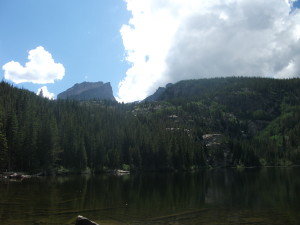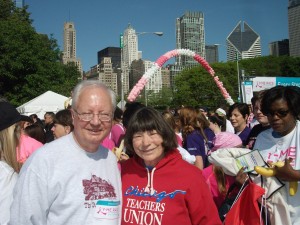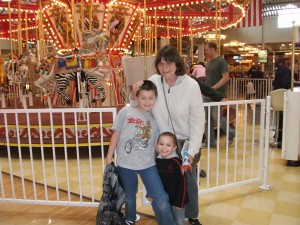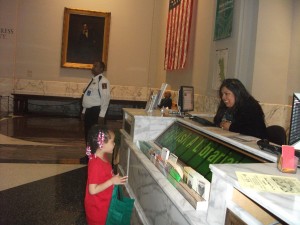Last night I watched the CNN documentary, Steve Jobs: The Man in the Machine. It told me much that I already knew, namely, that Jobs was a problematic figure with both a dark side and a light side, a man of genius with deep human flaws, but someone who clearly changed the world, at least on a technological level. We relate to computers and telephones today in ways that were almost unimaginable 30 or 40 years ago. At the same time, the movie filled in some gaps in my knowledge and made me aware of some aspects of his tragically shortened career that were less clear to me before.
But that is not the most important part of my reaction to the story. In fact, I had this blog post in mind well before seeing the movie in part because it simply reinforced a thought that has been with me for some time: that the shape of our choices is dictated to some extent by the timing of our lives and the circumstances in which we grow into adulthood. Many of us can still change a great deal as our life moves on, but those initial choices in high school and college, in our teens and early twenties, predetermine a great deal of what follows.
I have not yet read the Walter Isaacson biography of Jobs, though it sits on my shelf waiting for me, so I was intrigued to learn that Jobs graduated from high school in 1972, just four years behind me. But he died in 2011, and I am still here, his life ending early at 56 years of age as a result of complications from pancreatic cancer. Four years does not seem like a long time in a full life, but at that formative age, for baby boomers following the Sixties, it made all the difference in the world. It may have been one of the most dramatic periods in modern American history.
I entered college in the fall of 1968. In April of that year, as I was completing my senior year of high school, Rev. Dr. Martin Luther King, Jr., was assassinated in Memphis. We barely recovered from that shock when Sen. Robert F. Kennedy, a leading candidate for the Democratic nomination for president, was also assassinated in a hotel in Los Angeles after winning the California primary. Before the summer was over, the Democratic convention in Chicago was disrupted by major protests that were suppressed with major police violence. It was a rather traumatic introduction to four years of higher education and was followed by numerous protests. I attended college in downtown Cleveland, and watched or participated in civil rights, antiwar, and environmental demonstrations.
I mention this because, in the many years since then, especially more recently, I have wondered if I might have benefited from taking some business courses in order better to understand some of the more progressive business phenomena that have evolved on the American landscape. There are now green businesses focused on renewable energy, food businesses catering to new tastes for healthier foods, and environmental businesses focused on cleaning up rather than despoiling the environment. When I was a student in Cleveland, however, the businesses I knew best seemed like an extensive monolith of status quo enterprises, defending the despoliation of the environment, resistant to equal opportunity, with the corner offices almost an unrelenting parade of conservative, aging white men. I may have been a young white man myself, but I most definitely wanted to live a more interesting, purposeful life than those white men.
And so I studied literature at first, then switched to political science, in a quest to change the world, and eventually, by the early 1980s, returned to school to obtain graduate degrees in journalism and urban and regional planning. I did survive three undergraduate electives in economics, which were reinforced by planning-related economics classes at the master’s level, but that is not the same as classes in marketing and accounting and business management. As I said, as I have watched a new generation of business enterprises take new approaches to engaging with the world, I have wondered whether I might have benefited from learning more about entrepreneurship and business principles. But it was not to be because the influences that bore down on me made that less appealing when it might have been more feasible. I wanted to change the world in what I deemed a positive way, and the businesses that might have employed me in Cleveland at the time did not seem like the way to achieve that. Nonetheless, I did work in the business world for several years before moving to Iowa to take the helm of a small public interest nonprofit organization, only after which I pursued graduate school.
It was only as I was completing that graduate education that many of these new enterprises—and Apple Computer, which was a provocative and sometimes perplexing blend of both old and new ideas about how to run a business—burst onto the scene. Meanwhile, I was acquiring a whole new set of skills that implanted me firmly in the public sector, although I have spent most of my subsequent career in a nonprofit professional association. Along the way, I learned that a strong entrepreneurial spirit is a powerful ally even in the nonprofit world. They too must find ways to attract money. In my case, we most often do that in a highly competitive environment, developing proposals for grants and contracts that require significant innovative thinking—the very sort of thing that would probably serve me equally well as a consultant because, in effect, that is to some extent what I have become. I am in a service business, but I have had and enjoyed opportunities to change the world in ways that matter. Small ways, perhaps, compared to the impact of someone like Jobs, but appreciable. I have helped alter the prevailing thinking about the ways in which planners can contribute to the reduction of losses of lives and property from natural disasters. That does not seem like a small thing when I think about it very hard.
My sense of entrepreneurship was enhanced by the fact that I also was writing for a living, sometimes enhancing my income from working as a planner with book royalties and article fees and honoraria for speaking. I learned some marketing because I had to learn how to hone my message and sell books. It’s not nearly as easy as it may seem. In fact, the publishing business can be downright brutal, but I learned to survive.
In the end, my takeaway is that it matters less whether one ends up working in the private sector, nonprofit sector, or public sector, or anywhere else, for that matter, and much more what we ultimately do with the skills we acquire. Entrepreneurship is as much an attitude as a skill, and what we sell matters as much as how well we sell it, but what matters more is why we want to do what we do and the satisfaction we derive from doing it well. Looking back, I have no regrets about the skills and knowledge I developed or about my accomplishments in life. They have not made me a billionaire like Jobs, but the psychic rewards have been high. I took the hand that life dealt me during a volatile stretch of history and used it to make a difference. I will not ask for more.
Jim Schwab




